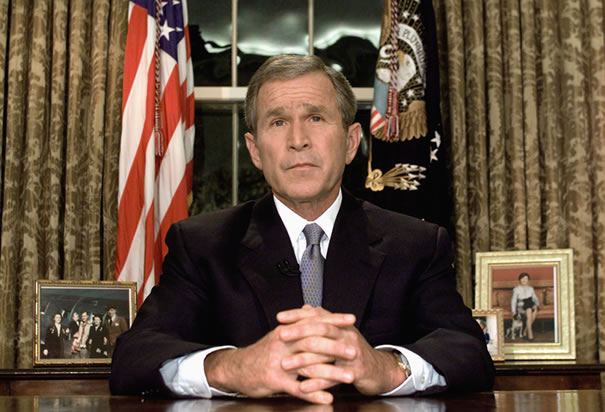THE CRASH AND BURN of the GOP in the US election can be seen as the consequence of the neo-con Dubya regime, which leads me to wonder if future historians will see Dubya as the Mr. Bean of the GOP: the Man Who Made It All Fall Apart.
Seriously, post-WW2 American conservatives had the whole world, in spite of Uncle Joe's best efforts. Uncle Joe had incredible advantages, the unbelievably pervasive espionage penetration of every important area of America being foremost.
No foolin', even though Uncle Joe had Dirty Harry, aka Harry Dexter White, on the inside, at the Oval Office level, it it still went all pear-shaped in the end.
Benn Steil has a fascinating article in FOREIGN AFFAIRS, "Red White: Why a Founding Father of Postwar Capitalism Spied for the Soviets" which you should ponder.
In July 1944, in the midst of World War II, representatives of 44 nations gathered in this remote New Hampshire town to create something that had never before existed: a global monetary system to be managed by an international body. The gold standard of the late nineteenth century, the organically formed foundation of the first great economic globalization, had collapsed during the previous world war. Efforts to revive it in the 1920s proved catastrophically unsuccessful. Economies and trade collapsed; cross-border tensions soared. In the 1930s, internationalists in the U.S. Treasury Department saw a powerful cause and effect and were determined to resolve the flaws in the international economic system once and for all. In the words of Harry Dexter White, a then little-known Treasury official who became the unlikely architect of the Bretton Woods system, it was time to build a "New Deal for a new world."
Harry even helped Uncle with a set of printing plates for the Occupation currency, which was paid for, ultimately, by the US taxpayer. The Allies put into circulation a total of about 10.5 billion Allied marks between September 1944 and July 1945; the Soviets likely issued more than 78 billion.
But capitalism prevailed because of capitalist innovations like the transistor and computers and fax machines and mutated into the Wall Street System we had when Dubya came along. And now, things are changing . . .
In July 1944, in the midst of World War II, representatives of 44 nations gathered in this remote New Hampshire town to create something that had never before existed: a global monetary system to be managed by an international body. The gold standard of the late nineteenth century, the organically formed foundation of the first great economic globalization, had collapsed during the previous world war. Efforts to revive it in the 1920s proved catastrophically unsuccessful. Economies and trade collapsed; cross-border tensions soared. In the 1930s, internationalists in the U.S. Treasury Department saw a powerful cause and effect and were determined to resolve the flaws in the international economic system once and for all. In the words of Harry Dexter White, a then little-known Treasury official who became the unlikely architect of the Bretton Woods system, it was time to build a "New Deal for a new world."
Harry even helped Uncle with a set of printing plates for the Occupation currency, which was paid for, ultimately, by the US taxpayer. The Allies put into circulation a total of about 10.5 billion Allied marks between September 1944 and July 1945; the Soviets likely issued more than 78 billion.
But capitalism prevailed because of capitalist innovations like the transistor and computers and fax machines and mutated into the Wall Street System we had when Dubya came along. And now, things are changing . . .



No comments:
Post a Comment